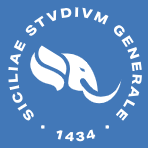Introduction
The University of Catania is the oldest university in Sicily, Italy, the 13th oldest in Italy and the 29th oldest in the world. It is located in Catania on the east coast of Sicily. It is a comprehensive public university that offers undergraduate, master's and doctoral education courses covering a wide range of disciplines.
Overview
Number of students: about 66,235.
Number of faculty: 1,623 administrative staff, 331 professors, 422 associate professors, 375 researchers, and 960 non-academic staff.
History
In 1434, King Alfonso of Aragon of Spain (also King Alfonso I of Sicily) approved the establishment of the General College in Catania, which was recognized by Pope Eugene IV in 1444. Students began classes in 1445. At that time, there were medical schools, philosophy departments, canonical and civil law departments, and theology and art departments.
1693 In 1840, the old university building was completely destroyed in an earthquake, and students moved to a wooden house near the port to continue their classes. Later, the new building designed by Giova Battista Vaccarini became a magnificent monument of Baroque architecture.
In 1840, during the Kingdom of Sicily, the Faculty of Law, the Faculty of Mathematics, Physics, and Natural Sciences, the Faculty of Philosophy, and the Faculty of Literature and Theology were established in Catania.
In 1947, with the needs of the development of modern agriculture in Italy, the Agricultural College was established.
Establishment time
October 19, 1434.
School strength
Faculty: It has a professional and large faculty, including 331 full professors, 422 associate professors, 375 researchers, etc. They have in-depth research and rich teaching experience in their respective disciplines, and can provide students with high-quality education and guidance.
Scientific research level: The school has carried out extensive and in-depth scientific research in many disciplines, especially in agricultural science, food science, physics, astronomy, medicine and other fields, and has achieved remarkable research results. For example, the university ranks 151st in the world in food science and engineering. Its research in physics and astronomy also has a high international influence. Its research results are frequently published in international academic journals, making important contributions to the development of related fields.
International Cooperation: The university actively cooperates and exchanges with many universities and research institutions around the world, and has signed international cooperation agreements with universities in Europe, the United States, Japan and many countries around the Mediterranean. It has participated in many international cooperation projects and academic exchange activities, providing students and teachers with a broad international perspective and exchange opportunities.
Nature of the institution
Public university.
Educational philosophy
Focus on inheritance and innovation, and is committed to combining ancient Mediterranean culture with modern new technologies to provide students with advanced training experience and cultivate talents with innovative spirit and cultural heritage.
Emphasis on the close integration of academic research and practical application, through cooperation with the business community, to create internship and employment opportunities for students, so that students can better adapt to the needs of society and the workplace.
Focus on the all-round development of students, provide rich and diverse courses and academic activities, cultivate students' critical thinking, teamwork ability and cross-cultural communication ability, so as to improve students' comprehensive quality and competitiveness.
Key laboratories and disciplines
Key laboratories: The school has several key laboratories, such as the Physics and Astronomy Laboratory, the Agriculture and Food Science Laboratory, the Medical Experiment Center, etc. These laboratories are equipped with advanced instruments and technical means, providing important support for the scientific research and teaching of related disciplines, and helping to promote the frontier research and transformation of disciplines.
Advantageous disciplines:
Agricultural science: including agricultural science and technology, food science and technology, land and environmental technology and planning, etc., with remarkable teaching and research results in agricultural production, food processing, environmental protection and other aspects, and has trained a large number of professional talents for the development of local agriculture and food industries.
Physics and Astronomy: Represented by the "Ettore Majorana" Department of Physics and Astronomy, it has a profound academic accumulation and strong scientific research strength in the fields of theoretical physics and astrophysics, and has trained a group of outstanding physics and astronomy talents, and its research results are highly renowned internationally.
Medicine: The teaching and scientific research level of the medical school has a certain influence in Italy and even internationally, covering multiple professional fields such as clinical medicine, medicine and surgery, biomedicine, etc., and has trained a large number of professional doctors and researchers for the medical industry, and has achieved many important results in disease diagnosis, treatment and medical research.
Faculty
The University of Catania has a total of 17 departments, a medical school and two special teaching units, as follows :
Department of Agriculture, Food and Environment: mainly involves teaching and research in the fields of agricultural science, food science, environmental science, etc.
Department of Biological, Geological and Environmental Sciences: focuses on the subject education and scientific research work of biology, geology and environmental science.
Department of Biomedical and Biotechnology Sciences: focuses on research and talent training in the fields of biomedicine and biotechnology.
Department of Chemical Sciences: covers various professional directions of chemical disciplines, and carries out teaching and research on chemical theory and application.
Department of Civil Engineering and Architecture: involves professional education and practice in civil engineering and architecture, and cultivates professional talents in related fields.
Department of Clinical Medicine: is committed to the teaching and research of clinical medicine, and cultivates clinicians and medical researchers.
Department of Pharmacology: mainly conducts research on pharmaceutical science and cultivates pharmaceutical professionals.
Department of Economics and Business: covers professional fields such as economics and management, and pays attention to the combination of economic theory and practice.
Department of Educational Sciences: focuses on the research of educational theories and methods and the cultivation of educational professionals.
Department of Electrical, Electronic and Computer Engineering: involves teaching and scientific research in majors such as electrical engineering, electronic engineering and computer science and technology.
Department of General Surgery and Medical Surgery: mainly trains surgeons and professionals in the field of medical surgery.
Department of Humanities: covers majors in multiple humanities and social sciences such as literature, history, philosophy, and language, and cultivates talents with humanistic qualities and cultural inheritance capabilities.
Department of Law: provides undergraduate, master's and doctoral courses related to law, and cultivates legal professionals.
Department of Mathematics and Computational Sciences: focuses on the teaching and research of mathematics and computer science, and cultivates professionals in related fields.
Department of Medicine, Surgical Sciences and Advanced Technology: focuses on advanced technology and innovative research in the field of medicine and surgery, and cultivates professionals with cutting-edge medical knowledge and skills.
Department of Physics and Astronomy: conducts basic research and talent training in physics and astronomy, and has a high level of scientific research in theoretical physics, astrophysics, etc.
Department of Political and Social Sciences: mainly studies issues in the fields of politics, economics, law, history and other social sciences, and cultivates related professionals.
Special Teaching Units: including the Modern Language Teaching Unit in Ragusa and the Architecture Teaching Unit in Syracuse, as well as the Catania Higher School, provide students with professional education and training in specific fields.
Ranking
2024 QS World University Ranking: 851st.
2024 US NEWS World University Ranking: 460th.
2024 TIMES World University Ranking: 401st.
2024 ARWU World University Academic Ranking: 501st.
Expenses
Tuition fees: Undergraduate tuition fees are about 1000-2000 euros/year, and master's tuition fees are about 1500-3000 euros/year. The specific fees vary depending on the major.
Living expenses: Students' monthly living expenses are about 800-1200 euros, including accommodation, food, transportation, etc.
Campus Environment
Geographic location: Catania is located on the east coast of Sicily, on the southern foot of Mount Etna, and on the Ionian Sea. It is a city with a long history and rich culture. It has many historical sites, museums and art galleries. At the same time, the surrounding natural environment is beautiful, with excellent beaches and magnificent volcanic landscapes, providing students with a unique learning and living experience.
Teaching facilities: The school has modern teaching facilities, including teaching buildings, laboratories, libraries, computer centers, etc. The library has a rich collection of books, covering books and journals in various disciplines, providing strong support for students' learning and research. In addition, the school also has a number of research centers and academic institutions, providing a platform for scientific research and academic exchanges between teachers and students.
Campus culture: The school pays attention to campus cultural construction, and often holds various cultural activities, academic lectures, art exhibitions, sports competitions, etc., to enrich students' extracurricular life, create an active campus cultural atmosphere, and promote exchanges and cooperation among students. At the same time, Catania's warm and hospitable cultural traditions also add a unique charm to campus culture.
-
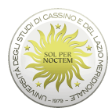
University of Cassino and Southern Lazio
-
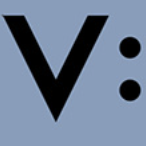
University of Campania Luigi Vanvitelli
-
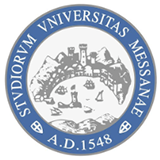
University of Messina
-
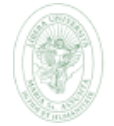
Libera Universita degli Studi Maria SS. Assunta di Roma (LUMSA)
-
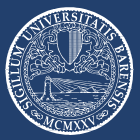
University of Bari Aldo Moro
-
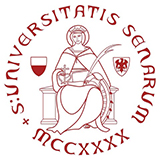
University of Siena
-
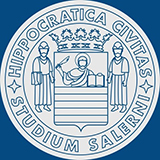
University of Salerno
-
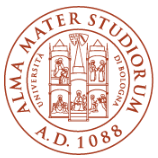
University of Bologna
-
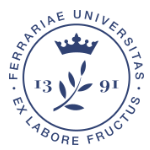
University of Ferrara
-
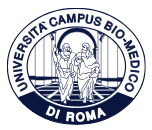
Campus Bio-Medico University of Rome
-

Mesoamerican University
-

Istmo University
-

Mariano Galvez University of Guatemala
-

Regional University of Guatemala
-

Galileo University
-

Francisco Marroquín University
-

Rafael Landívar University
-

University of the Valley of Guatemala
-

University of San Carlos of Guatemala
-

Technological Institute of Tlaxcala Plateau
-

Golfo University
-

Technological University of South Sonora
-

Technological University of Huejotzingo
-

Tizimín Institute of Technology
-

Chilpancingo Institute of Technology

